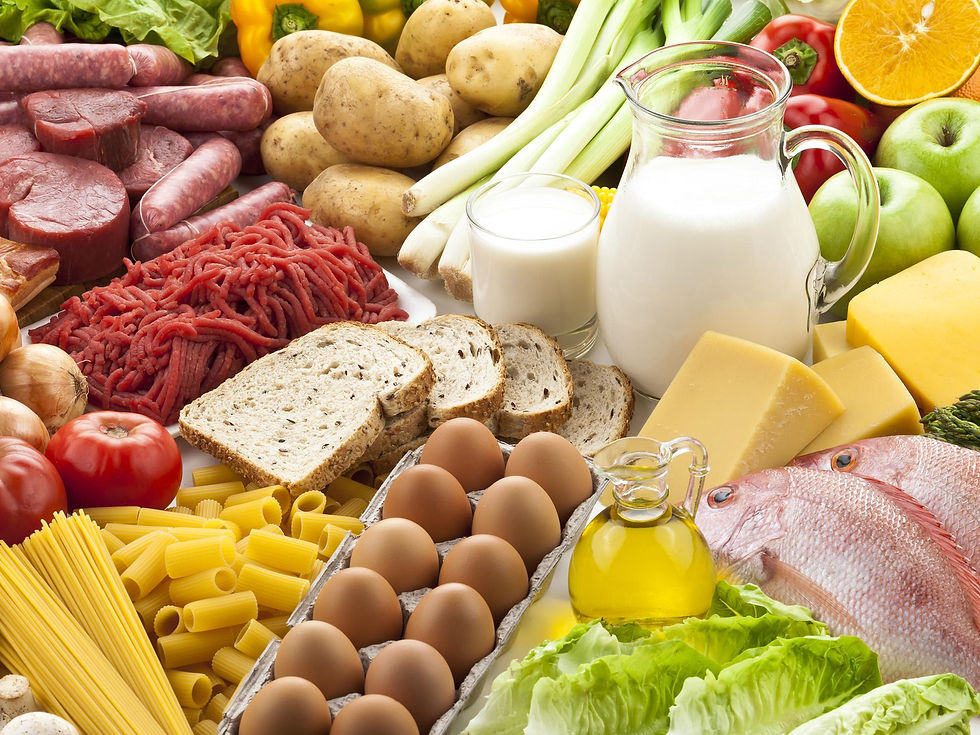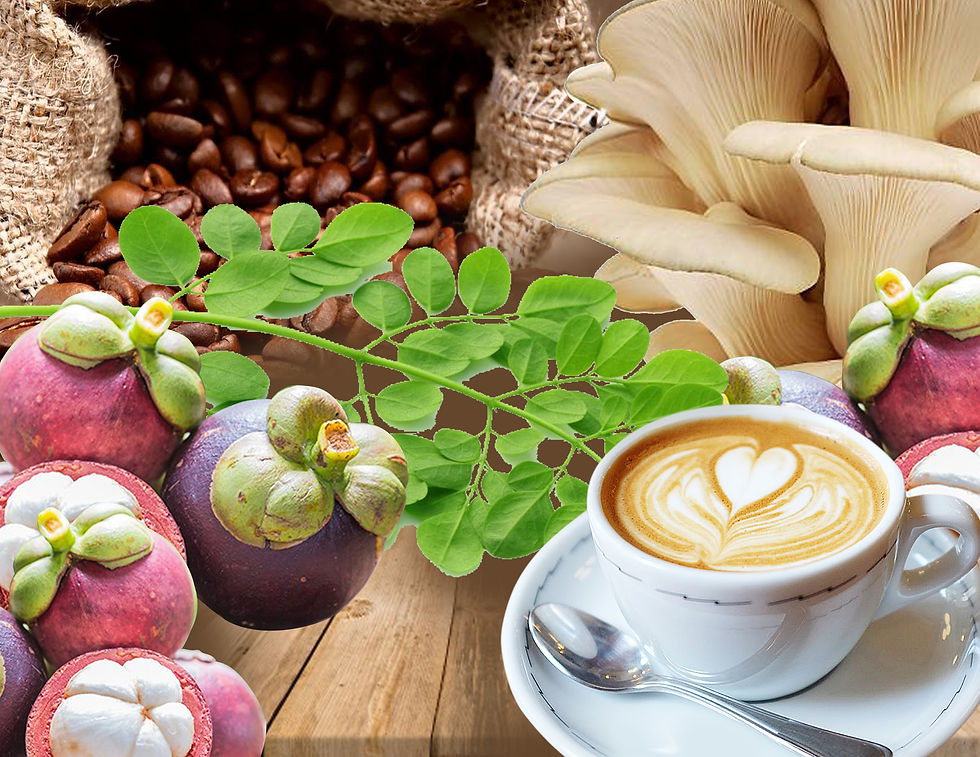Healthy Food
- Mang Juan

- Apr 30, 2020
- 4 min read
Updated: May 27, 2020
Eat Well, Drink Well, Live Well
In the midst of the COVID-19 pandemic, eating healthy food remains an important part of maintaining your health. While there are no specific foods that can help protect you from the virus, a nutritious diet can boost your immune system or help you fight off symptoms. You may not be able to share meals with friends and loved ones, but there are lots of other ways to eat well and support your health at this difficult time.
What is a healthy diet?
Eating a healthy diet is not about strict limitations, staying unrealistically thin, or depriving yourself of the foods you love. Rather, it’s about feeling great, having more energy, improving your health, and boosting your mood.
Healthy eating doesn’t have to be overly complicated. If you feel overwhelmed by all the conflicting nutrition and diet advice out there, you’re not alone. It seems that for every expert who tells you a certain food is good for you, you’ll find another saying exactly the opposite. The truth is that while some specific foods or nutrients have been shown to have a beneficial effect on mood, it’s your overall dietary pattern that is most important. The cornerstone of a healthy diet should be to replace processed food with real food whenever possible. Eating food that is as close as possible to the way nature made it can make a huge difference to the way you think, look, and feel.
WELLNESSIZE YOUR FOOD
There are many ways to make good food. It doesn’t only involve using the freshest and finest ingredients, but also preparing it the right way. You want to make sure that the food you serve your loved ones is fresh, nutritious and absolutely delicious

The fundamentals of healthy eating
While some extreme diets may suggest otherwise, we all need a balance of protein, fat, carbohydrates, fiber, vitamins, and minerals in our diets to sustain a healthy body. You don’t need to eliminate certain categories of food from your diet, but rather select the healthiest options from each category.
Protein gives you the energy to get up and go—and keep going—while also supporting mood and cognitive function. Too much protein can be harmful to people with kidney disease, but the latest research suggests that many of us need more high-quality protein, especially as we age. That doesn’t mean you have to eat more animal products—a variety of plant-based sources of protein each day can ensure your body gets all the essential protein it needs.
Fat. Not all fat is the same. While bad fats can wreck your diet and increase your risk of certain diseases, good fats protect your brain and heart. In fact, healthy fats—such as omega-3s—are vital to your physical and emotional health. Including more healthy fat in your diet can help improve your mood, boost your well-being, and even trim your waistline
Fiber. Eating foods high in dietary fiber (grains, fruit, vegetables, nuts, and beans) can help you stay regular and lower your risk for heart disease, stroke, and diabetes. It can also improve your skin and even help you to lose weight.
Calcium. As well as leading to osteoporosis, not getting enough calcium in your diet can also contribute to anxiety, depression, and sleep difficulties. Whatever your age or gender, it’s vital to include calcium-rich foods in your diet, limit those that deplete calcium, and get enough magnesium and vitamins D and K to help calcium do its job.
Carbohydrates are one of your body’s main sources of energy. But most should come from complex, unrefined carbs (vegetables, whole grains, fruit) rather than sugars and refined carbs. Cutting back on white bread, pastries, starches, and sugar can prevent rapid spikes in blood sugar, fluctuations in mood and energy, and a build-up of fat, especially around your waistline.

Healthy Drinks!
Sure, water is the smartest drink out there, but if you're craving something more, these 10 healthy drinks will give you a boost of nutrition.
With so many drinks filled with empty calories on supermarket shelves, it can be hard to find options that also come with vitamin and minerals. But fear not, there are plenty of nutritious ways to quench your thirst if you’re in the mood for something other than plain or infused water.
Green Tea
Green tea has been hailed for its health benefits in Asian countries for centuries; only recently did Americans get the memo. Green tea contains a high level of polyphenols which are believed to prevent certain types of cancer like breast cancer and prostate cancer. Studies suggest it can also help reduce sharp increases in blood sugar after a meal, which can be especially beneficial for people with type 2 diabetes.
Lemon Juice
Thought lemons were just a garnish? Think again. Lemon juice is a surprisingly powerful immune booster. Just 2 tablespoons stirred into a glass of water adds 14 mg vitamin C. Another bonus? You’ll probably drink more lemon water than plain water because it tastes better–one more way to help stay hydrated.
Coconut Water
The flavor of this tropical water is a bit controversial. Some people love it, and some hate it. But there’s no debating the fact that drinking it can hydrate the body and provide a surprising amount of potassium. Potassium plays an important role in maintaining a healthy heartbeat and regulating blood pressure.
Hot Chocolate
Who knew dessert could be nutritious? We’ve all heard about the health benefits of cocoa, but the antioxidant-rich drink is even more beneficial when mixed with milk, which is high in calcium and usually fortified with vitamin D.
Orange Juice
Possibly the most ubiquitous juice on the market, orange juice is nutrition-packed. Everybody knows it’s a great source of vitamin C, but most people don’t know that it’s also a good source of potassium and thiamin plus calcium and vitamin D if it’s fortified.
Coffee
Coffee in and of itself boasts some impressive health benefits—it boosts your memory, decreases your risk of diabetes and Parkinson's disease, and even improves exercise endurance—when consumed moderately. The problem is that coffee often serves as a vehicle for cream and sugar, adding a lot of extra calories to what might be an otherwise healthy drink.





Comments